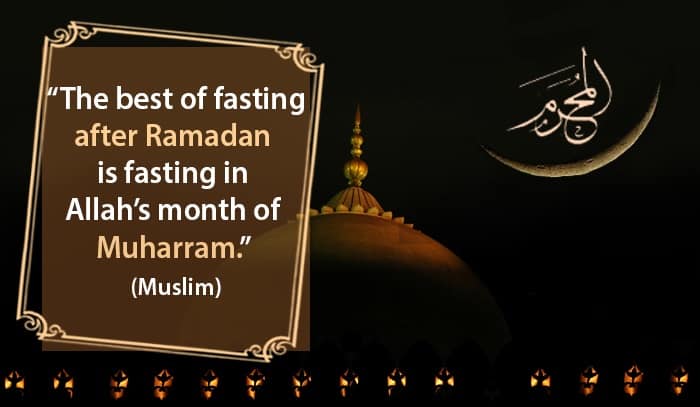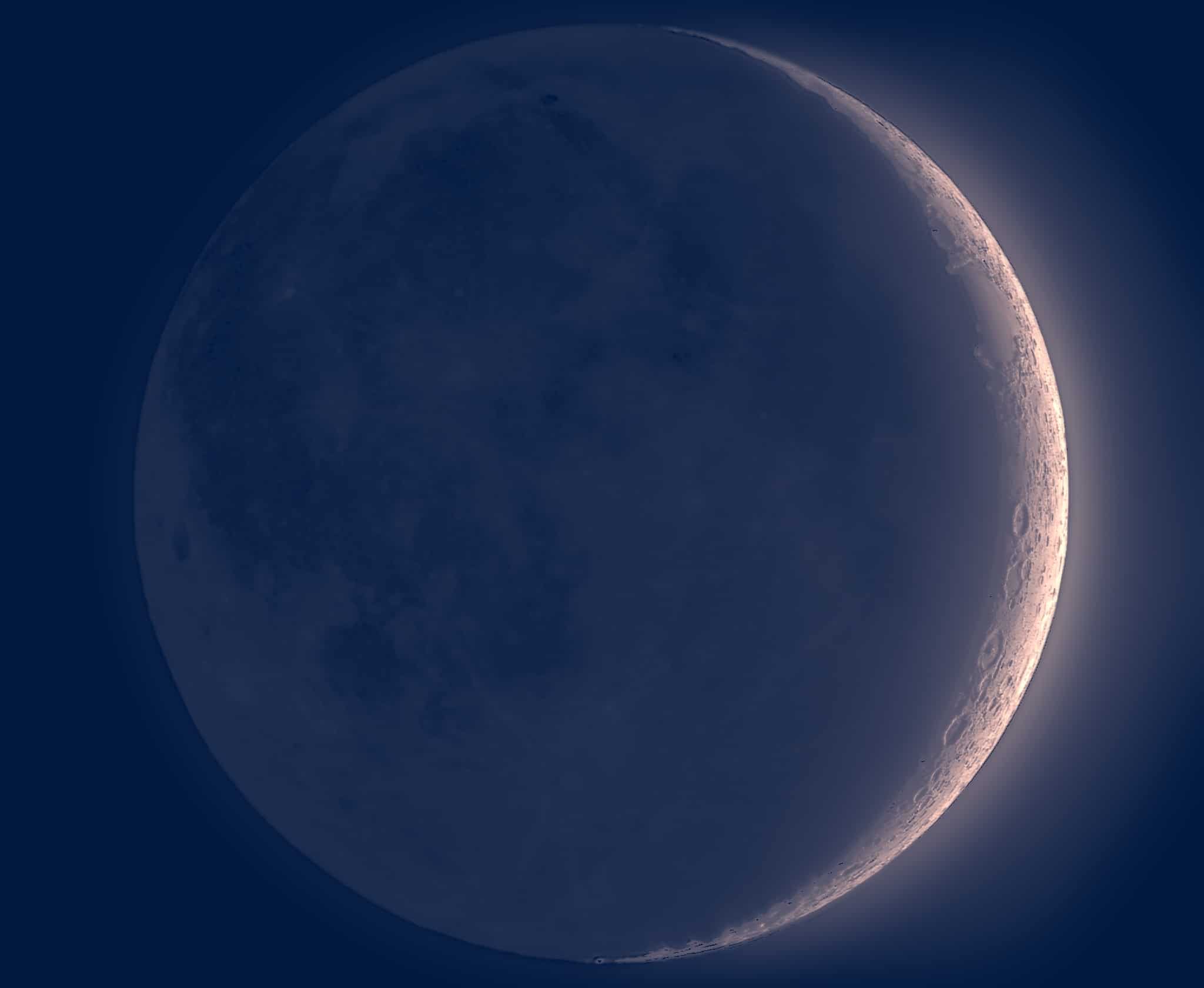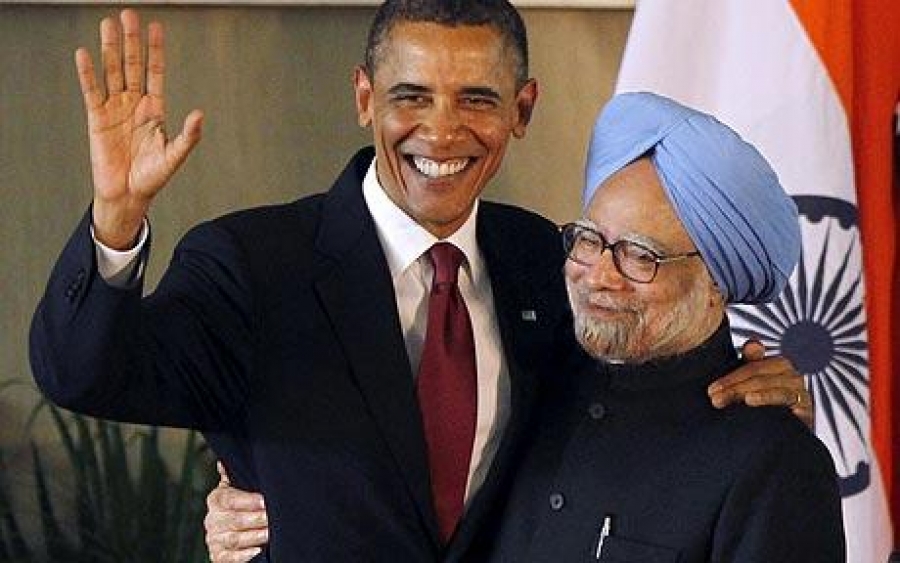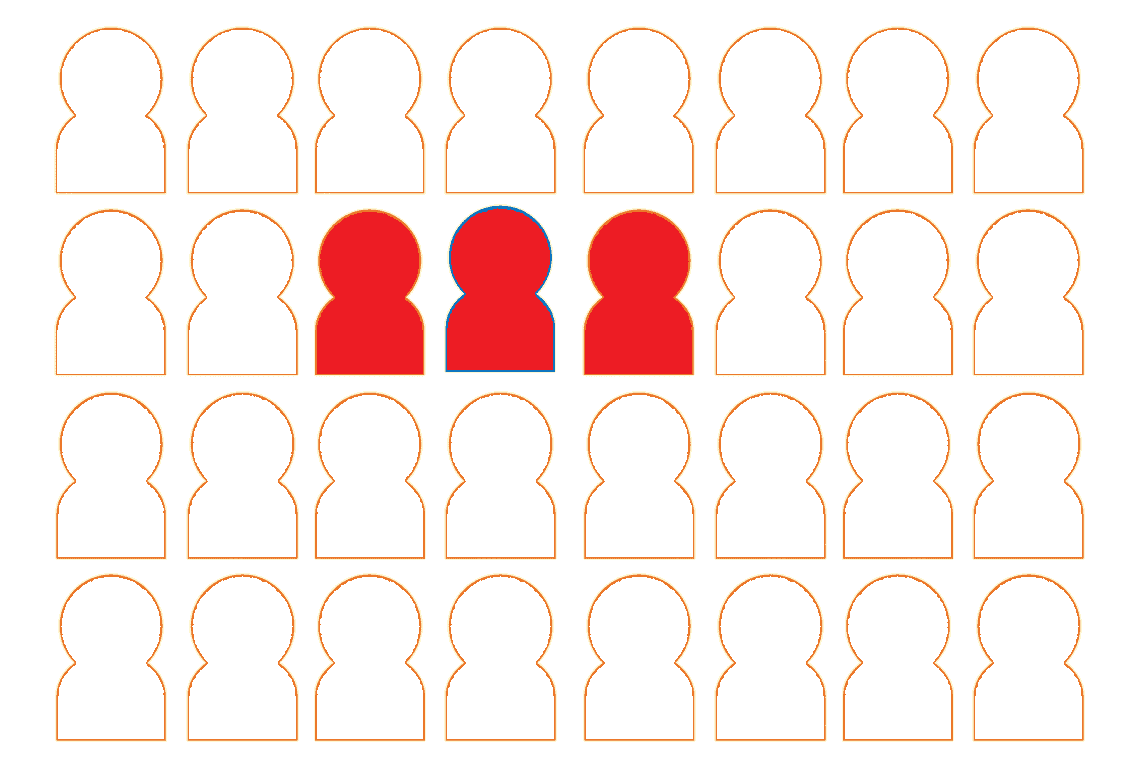Muharram, the first month of our Hijri calendar, is almost upon us. From what we have been conveyed in the Qur’an and Sunnah, it is a month that holds many virtues. There are opportunities for incredible rewards in fasting, charity and prayer, so the month provides a great chance for Muslims to seek the inner strength that comes from the nearness to Allah (swt). So make sure you pay attention to what follows, especially if you’re still hurting over lost opportunities in Ramadan or Dhul Hijjah, or if you’re just always really hungry for hasanaat, as we should all aspire to be.
The Best of Fasts
Imam Muslim reported (1163) from Abu Hurayra (Allah be pleased with him), that the Prophet (ﷺ) said:
The best of fasts after the month of Ramadan are in the Month of Allah which you call Muharram. And the best of prayer after the obligatory prayer is the night prayer.
This refers to general voluntary fasts according to Imam Ibn Rajab (r.a): these are best in the month of Muharram, just as the best general voluntary prayer is night prayer.
Fasting is a secret between the servant and his Lord. This is why Allah Mighty and Exalted says [in a hadith qudsi]:
Every action of the son of Adam is his, except for fasting. It is Mine, and it is I who rewards it. [Bukhari and Muslim, from Abu Hurayra]
And the Prophet (ﷺ) also said:
The fasting person has two joys: one when he breaks his fast, and the other when he meets his Lord. [Muslim]
To add to this, the Prophet ﷺ related some benefits in this world for fasting:
“Fast, and you shall have good health.” [Ahmad, from Abu Hurayra]

The Day of `Ashura: The 10th of Muharram
It is mentioned in Bukhari and Muslim from Ibn Abbas (Allah be pleased with him and his father) that he was asked about fasting the Day of `Ashura’, 10th of Muharram. He said:
I did not see the Messenger of Allah (ﷺ) fast a day while more avid to seek its virtue than this day (meaning the Day of `Ashura). [Bukhari (2006), and Muslim (1132)]
That should turn some heads. Here we can see the Day of `Ashura’ obviously has a huge gift for us in it, and tremendous sanctity. What’s more interesting is that the virtue of fasting was known among the Prophets (peace be upon them all). Both Prophet Nuh and Prophet Musa (peace be upon them both) fasted it.
The Prophet (ﷺ) used to fast this day even in Mecca, though he had not yet ordered others to do so, as mentioned in both Bukhari and Muslim [Bukhari (2002), Muslim (1125)].
When he migrated to Medina, and saw other people of the book fasting this day, venerating it in this way, he ordered the Muslims to fast it, and encouraged it so much that even the children would fast it.
It has been reported in both Bukhari and Muslim from Ibn Abbas r.a that:
When the Messenger of Allah (ﷺ) reached Medina, he found the Jews fasting the Day of `Ashura’, so he asked them, ‘What is this day you are fasting?’ They said, ‘This is a tremendous day. Allah saved Musa and his people on this day and drowned Pharaoh and his people. Musa fasted it out of thanks, so we fast it too.’ The Messenger of Allah (blessings and peace be upon him) said, ‘And we are more deserving of Musa than you are.’ So he fasted this day, and ordered that it be fasted. [Bukhari (2004) and Muslim (1130)]
An Extra Day
At the end of his life, the Messenger of Allah (ﷺ) made the determination not to fast this day alone, but with another day (either before or after it), in order to be different from the Jews.
It has been reported in the Sahih of Imam Muslim (Allah have mercy on him), also from Ibn Abbas (Allah be pleased with him) that:
When the Messenger of Allah (ﷺ) fasted the Day of `Ashura’ and ordered his companions to fast it, they said, ‘O Messenger of Allah! This is a day that the Jews and Christians venerate.’ So the Messenger of Allah (blessings and peace be upon him) said, ‘When next year comes – if Allah wills – we will fast the Ninth [of Muharram with it].’ But the next year did not come before the Messenger of Allah (blessings and peace be upon him) passed away. [Muslim (1134), Abu Dawud (2445)]
And it is reported in the Musnad of Imam Ahmad (Allah have mercy on him), from Ibn Abbas (Allah be pleased with him) that the Prophet (ﷺ) said:
Fast the Day of `Ashura’ and be different from the Jews by fasting a day before it or a day after it. [Ahmad]
Giving in Charity on the Day of `Ashura’
It has been reported from Abd Allah ibn `Amr ibn al-`As (Allah be pleased with him), that:
Whoever fasts `Ashura’ it is as if he has fasted the entire year. And whoever gives charity this day it is like the charity of an entire year.
This evokes an element of the rewards offered on Laylatul Qadr: multiplied rewards are nothing to miss out on, so plan ahead for a tidy sum to give away, and prepare to fast for it if you can.
Some of the other virtues of the Day of `Ashura’
It is a day in which Allah forgave an entire people. Tirmidhi relates that the Prophet (ﷺ) said to a man:
If you want to fast a month after Ramadan, then fast Muharram, for it has a day in which Allah forgave an entire people, and He turns to others in repentance in. [Tirmidhi (841)]
As for your voluntary night prayer (qiyam al-layl), remember that it eclipses voluntary prayers during the day because it is closer to secrecy, and nearer to sincerity (ikhlas).
Allah Most High said, “Lo! the vigil of the night is (a time) when impression is more keen and speech more certain.”[Qur’an, 73.6]
It’s because the time of the night vigil (tahajjud) is the best of times for voluntary prayer, and the closest a servant gets to his Lord. It is a time when the doors of the skies are opened, supplications answered, and needs fulfilled. From the Book of Allah we find:
Allah Most High has praised those who wake up at night in His remembrance, supplication, seeking forgiveness, and intimate beseeching (munajat), saying, “Who forsake their beds to cry unto their Lord in fear and hope, and spend of that We have bestowed on them. No soul knows what is kept hid for them of joy, as a reward for what they used to do.”[Qur’an, 32.16-17]
And:
“Or he who pays adoration in the watches of the night, prostrate and standing, bewaring of the Hereafter and hoping for the mercy of his Lord? Say: Are those who know equal with those who know not? But only those of understanding will pay heed.” [Qur’an, 39.9]
And He said to His Prophet ﷺ:
“And some part of the night awake for it, as voluntary worship for you. It may be that thy Lord will raise thee to a praised estate.” [Qur’an, 17.79]
It has been said that those who worship at night will enter Paradise without reckoning, and that standing in night prayer shortens the length of one’s Standing on the Day of Judgment.
To add to the message Allah is giving us about night prayers, the noble Prophet had this to say:
“Stick to night prayer, for it was the way of the righteous before you. Night prayer is a means of closeness to Allah Most High, of expiating for bad deeds, avoiding sins, and keeping away illness from one’s body.” [Tirmidhi (3543], Bayhaqi, and others; it is a sound (hasan) hadith]
This is why Abu Sulayman al-Darani would say:
The people of the night find more joy than the people of distraction (lahw) in their distractions. Were it not for the night, I would not like to remain living.
So here is our opportunity to realise how close Allah is to our jugular vein. The fasting, charity and tahajjud that is so emphatically described in these 10 days and beyond could be the things that could save our very skin on the day of judgement, and will hopefully bring us nearer and dearer to our Lord. We ask that he makes it easy for all of us to do as many of these things as possible, and that they’re a means of our success in this world and our ticket to somewhere higher in the next.
Some of the content has been sourced from this article on the same topic.
![]()
















